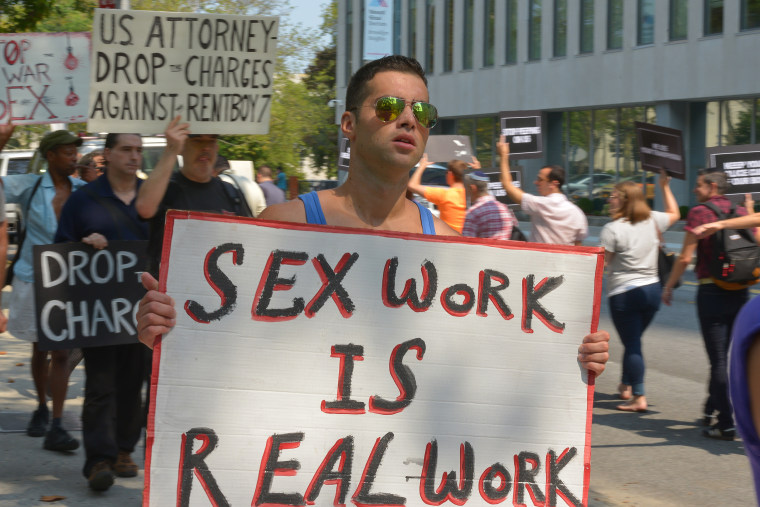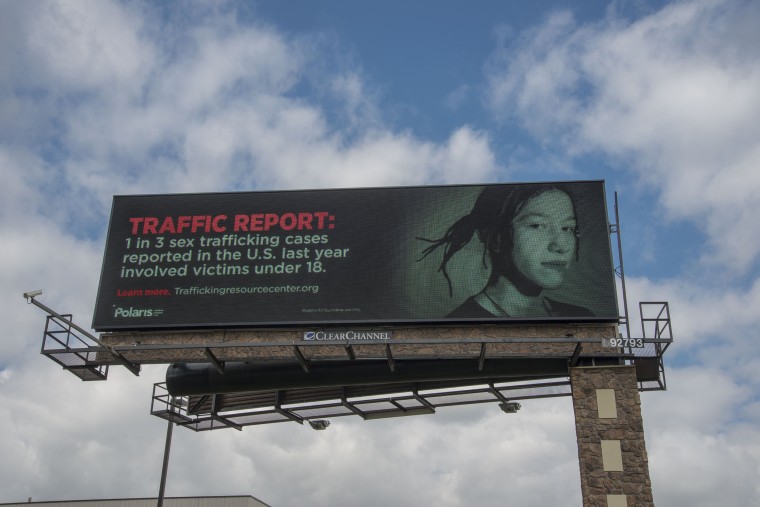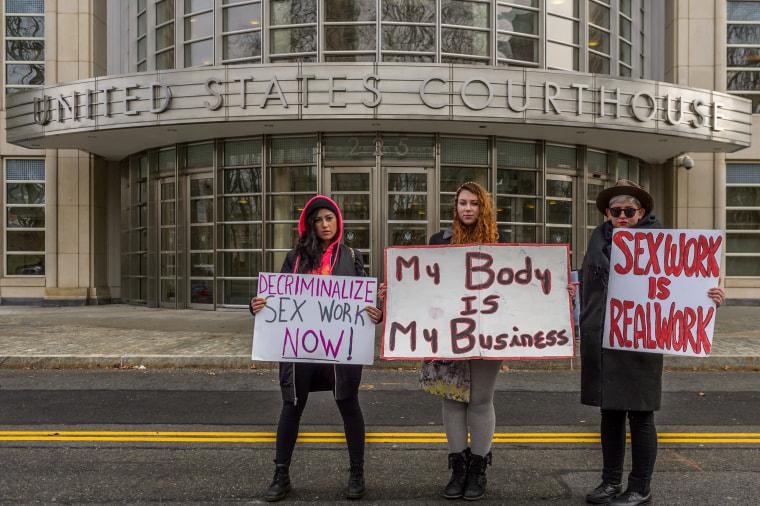Congress has too long been defined by polarization: Through much of the Obama and now the Trump administration, the House and Senate have been largely unable to come to any agreements on these topics, stymied by a seeming inability to cross the aisle and create real bipartisan solutions.
But there’s at least one area where true bipartisan support has been found: The rapidly escalating war on trafficking. Early this month, President Trump signed the Allow States and Victims to Fight Online Sex Trafficking Act of 2017 (commonly referred to as FOSTA) into law; as a result of this law, websites are now legally liable if anyone uses their services to promote sex trafficking. A related bill looking to cut off banking services to “human traffickers” has found similarly broad support, passing 408-2 in the House, with passage in the Senate looking extremely likely.

It’s not hard to understand why these bills have found favor on both sides of the aisle. As advertised by their sponsors, they’re aggressive legislation that will help take down human traffickers who’ve been forcing vulnerable women and underage people into sex work against their will — a mission that most of us can get on board with.
And yet in practice, the true targets of the war on trafficking have been the marginalized, low income consensual sex workers whose livelihoods and ability to stay safe have long been dependent on the resources being scrubbed from the internet in the name of ending trafficking.
For instance, when the federal government seized notorious escort advertising site Backpage.com, many escorts found themselves faced with the choice of finding alternative work or missing a rent payment. For those for whom sex work was the only reasonable option, that meant turning to street-based sex work or employing the services of a potentially abusive pimp or agency, landing in the very situation the war on trafficking claimed to be protecting them from.

It’s likely that these laws will be challenged in court and eventually overturned: Advocates have argued that especially the original bill, which targets a broad array of sex-related speech defined as “trafficking,” is more likely to curb free speech by encouraging online platforms to censor their users than it is to combat trafficking. Even the Department of Justice has said it could potentially be found to be unconstitutional, due to a clause that allows criminal punishment to be applied retroactively.
But while overturning these bills in court would be a good first step, it’s not enough. As long as consensual sex work is treated as functionally indistinct from abusive, forced or coercive situations, our laws will continue to punish some of the vulnerable people we claim to want to protect. Criminalizing and aggressively cracking down on all sex work pushes consensual sex workers underground and into unsafe environments, possibly creating newly trafficking victims and making sex work less safe. It also does little to discourage or combat people who profit from coercing others into the sex trade.
In contrast, decriminalization — removing criminal penalties for engaging in sex work — allows to consensual sex workers to more openly and thus safely conduct business. Anti-sex work laws often hamper support groups working to provide safety resources (like safer sex supplies, housing and information on harm reduction) to vulnerable sex workers by equating any assistance with pimping, pandering or promoting trafficking; when sex work isn’t a crime, these groups can provide assistance to sex workers without fear.

importantly, it’s significantly easier to identify and provide assistance to genuine victims of trafficking when they’re no longer afraid that seeking assistance from law enforcement will get them thrown into jail for engaging in prostitution.
A wide range of groups including Amnesty International, Freedom Network USA, Global Alliance Against Traffic in Women, Human Rights Watch, UNAIDS, World Health Organization, International Women’s Health Coalition and numerous sex worker advocacy and support groups have thrown their support behind the decriminalization of consensual sex work, recognizing that removing the possibility of arrest is the best way to make consenting sex workers safer and effectively fight trafficking.
Though it’s unlikely that the American government will follow suit any time soon, our refusal to recognize the extreme cost of criminalizing sex work serves only to harm some of the most vulnerable members of our society. It seems worth asking why it is that Congress members are able to cross the aisle when it means passing legislation that suppresses free speech and reduces the safety of women and men who are just trying to earn a living — while a fact-based, proven solution for making sex work safer and effectively combatting trafficking is rejected by liberal feminists and conservative Christians alike.
Lux Alptraum is a Development Producer for Fusion’s "Sex.Right.Now." and the author of "Faking It: The Lies Women Tell About Sex — And the Truths They Reveal," out in fall 2018 from Seal Press.
